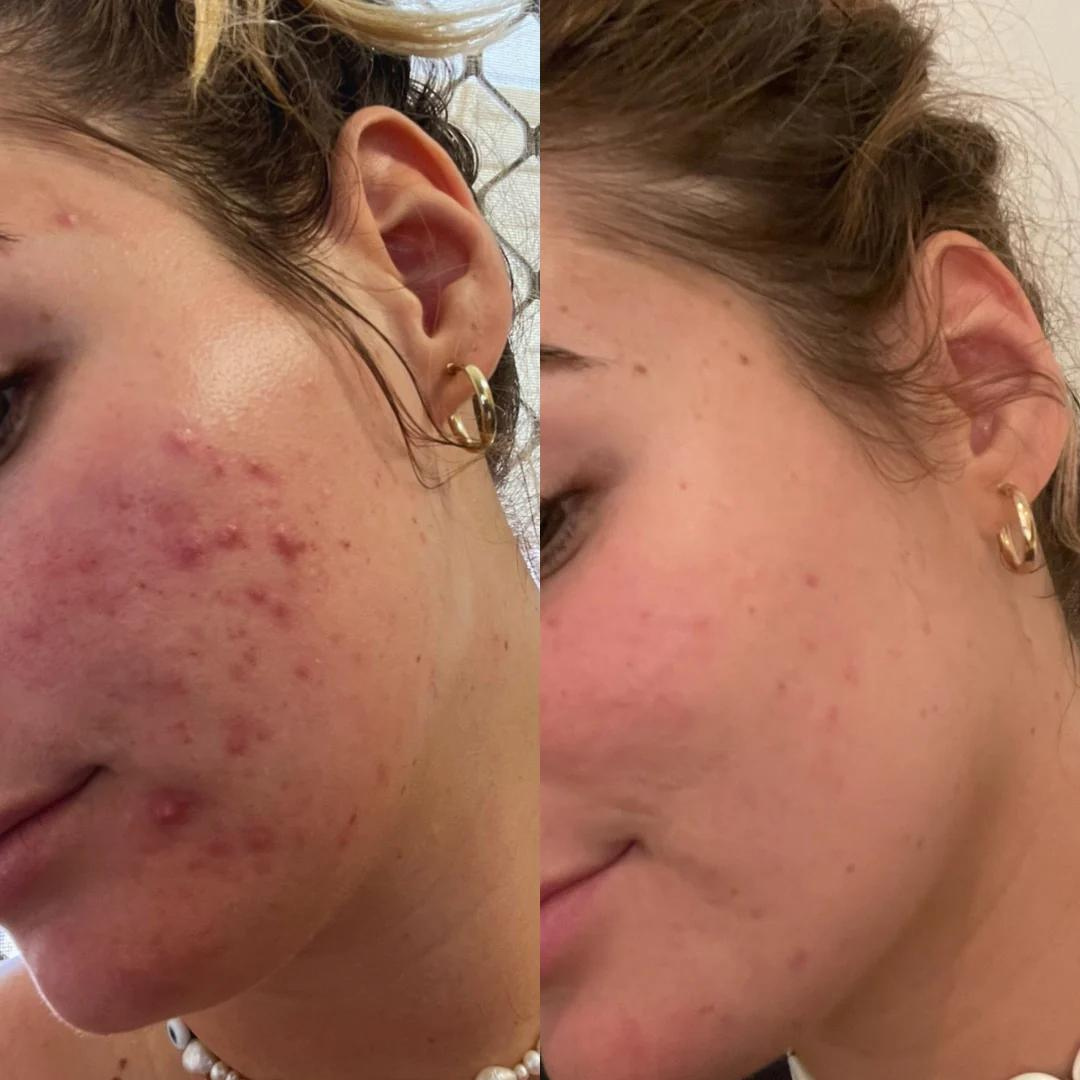Struggling with period pain, bloating, or pesky breakouts? Your gut might hold the secret to your skin's happiness and happy hormones. So before you go frantically googling “how to help period pain” and finishing a block of chocolate (we’ve been there), it’s actually time to consider that your gut health is playing a major role in this. Let's explore how your hormones, menstrual cycle, and gut health team up to influence your skin's glow.
The Gut-Hormone Connection:
Ever noticed how your tummy troubles seem linked to your mood swings or acne? That's because your gut and hormones work together. When your gut's not happy, it messes with your hormones, causing all sorts of skin issues.
Chances are, you're aware of the connection between stress and gut health, but did you know that your digestive well-being also influences your oestrogen levels? When oestrogen is produced in the ovaries and, to a lesser extent, in fat tissue post-menopause, it travels through the bloodstream to the liver for processing. However, there's another axis to consider—the oestrogen-gut microbiome axis. Your gut microbiota produce an enzyme called Beta-glucuronidase, which converts oestrogen into its active form. But if your gut is out of balance (known as dysbiosis), or if your microbial diversity is lacking, your gut bacteria may not produce enough of this enzyme, leading to less active oestrogen circulating in your body. This disruption can affect fertility, metabolism, skin health, and cardiovascular function. Post-menopause, decreased oestrogen levels increase the risk of obesity, cardiovascular disease, and osteoporosis.
The link between hormonal imbalances, PMS and the gut microbiome
Given the significant impact of hormonal imbalances on overall health, it's no surprise that shifts in hormone levels, particularly excess oestrogen, can contribute to various PMS symptoms. These may include heavier periods, bloating, mood swings, fluid retention, adrenal fatigue, acne, headaches, and breast tenderness. Moreover, the introduction of xenoestrogens—hormone-mimicking substances found in common items like contraceptives, plastics, cosmetics, non-organic produce—can exacerbate the issue. Accumulation of xenoestrogens may lead to oestrogen dominance, potentially increasing the risk of long-term conditions such as endometriosis, polycystic ovary syndrome, and breast cancer, while also worsening PMS symptoms.
The key to happy hormones = a healthy gut
To start addressing period pain, alleviating PMS symptoms, and enhancing overall health, it's crucial to nurture gut health and fortify liver and elimination pathways. Begin by fostering a diverse gut microbiome with antioxidant-rich, high-fibre vegetables and a primarily wholefood based diet but also your gut may need some extra support & healing in order to get it back to where it should be.
Now, you're probably wondering, "How do I do that?" This is where the Inside & Out Program by PuraU steps in. It's not just any program; it's designed to target the root cause of acne by focusing on gut health. Why the gut, you ask? An imbalance in gut microbiota can influence inflammation throughout the body, including the skin. By addressing gut health, the Inside & Out Program aims to reduce inflammation, support healthy hormone levels, and, as a result, alleviate acne. Through a carefully formulated blend of probiotics and natural ingredients, the program supports the gut-skin axis, offering a holistic approach to managing acne. It's about treating the problem at its source, not just the symptoms. If you're experiencing cycle-related breakouts and are looking for a natural, effective solution, the Inside & Out Program could be the answer. It's time to explore the connection between your menstrual cycle, gut health, and skin clarity.
Gut Maintain is our daily vitamin & probiotic that we recommend introducing after you have used the Gut Program for 8-12 weeks.
Additional strategies to promote gut health and foster balanced hormones include minimising consumption of alcohol, refined sugars, additives, MSG, and charred foods, as they may exacerbate dysbiosis and inflammation. It's also beneficial to steer clear of environmental toxins and endocrine-disrupting chemicals commonly found in various cleaning and personal care products. Lastly, managing stress levels is paramount, given the detrimental effects of elevated cortisol on the immune system and microbiome. Stay tuned for our next blog where we cover six lifestyle tips that you can introduce to reduce stress levels and improve your health.
